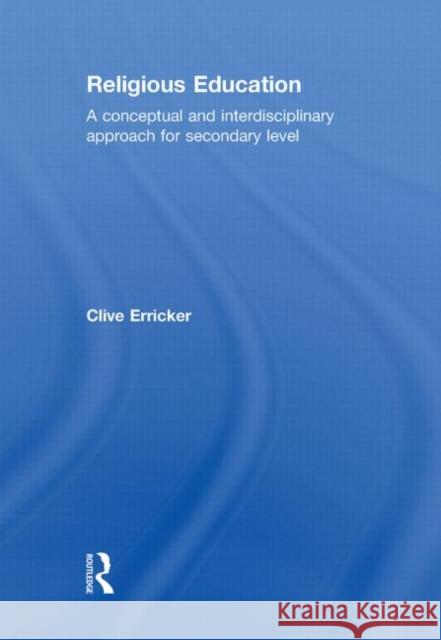Religious Education: A Conceptual and Interdisciplinary Approach for Secondary Level » książka
Religious Education: A Conceptual and Interdisciplinary Approach for Secondary Level
ISBN-13: 9780415478731 / Angielski / Miękka / 2010 / 234 str.
Religious Education: A Conceptual and Interdisciplinary Approach for Secondary Level
ISBN-13: 9780415478731 / Angielski / Miękka / 2010 / 234 str.
(netto: 718,58 VAT: 5%)
Najniższa cena z 30 dni: 654,86
ok. 16-18 dni roboczych.
Darmowa dostawa!
The role of Religious Education in secondary schools is the subject of national and international debate. This book examines the current debates surrounding RE and puts forward a new approach to teaching the subject that is non-faith based and focused on conceptual enquiry and the development of a clear pedagogy. The book is based on the Living Difference learning model developed in Hampshire and adopted in other parts of the UK, which is sparking international discussion and provides an effective approach to implementing the new secondary curriculum. The chapters include examinations of:
- religious education and the curriculum
- an interdisciplinary approach to religious education
- the significance of pedagogy and learners development
- planning, progression, assessment and delivery
- specific case studies and examples of good practice in schools
- theoretical grounding and the future of RE
- the effects of globalisation, post-modernity and multiculturalism.
The role of Religious Education within schools has been the subject of national and international debate. This new textbook not only provides an overview and explanation of existing approaches to the subject but also explores a new perspective on RE, an approach that is non-faith based and characterised by an emphasis on conceptual enquiry, overtly interdisciplinary perspectives and clear pedagogy. Based on the Living Difference approach adopted throughout Hampshire, this new perspective on teaching RE is recognised and supported by QCA and Ofsted and is rapidly gaining support throughout the UK and internationally.
The book provides tutors, students and teachers with a basis for developing their thinking about Religious Education, its place in the curriculum and an effective means for its delivery in schools. The approach to RE is placed in the larger context of education in the contemporary world, providing a historical and contemporary commentary on religious education. Throughout, theory is linked to practice through case studies that address questions of religious literacy and worldview construction within RE and are also related to other aspects of the curriculum and learnersâ development.
Throughout the text this interdisciplinary approach takes full account of the Every Child Matters initiative and other significant trends influencing policy and approach such as globalisation, postmodernity and multiculturalism.











